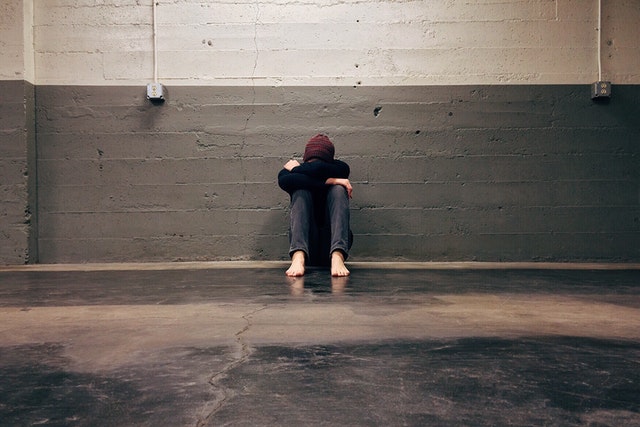
Depression is one of the most widely diagnosed mental illnesses, affecting over 280 million people. Our culture has become much more aware of depression, but it is still often represented by symptoms that are not typical in everyone. Depression gets overlooked when it doesn’t fit our cultural expectation of sadness and melancholy. Many symptoms are invisible to the outside observer, or can be assumed as having nothing to do with mental health. It’s important to know the true criteria for a diagnosis of Major Depressive Disorder, as even those struggling with depression are often unaware of how it manifests in their life. Recognizing these symptoms in yourself or others can drastically alter your success in managing a depressive episode.
Change in Appetite/Sleep
Biological signs of depression can be helpful, as they are objective and easily observed by others. A depressive episode for many is marked by disruption in their sleep or eating routines. It is common for this to happen either way. One can have largely increased appetite during a depressive episode, or it can be extremely limited. Gaining ten pounds doesn’t seem like it would be related to mental health, yet often it is the case. Similarly for sleep, a depressive episode is frequently marked by a increase or decrease in sleep. It is typical to hear someone unable to get any sleep, but another might report an inability to do anything other than sleep. The severity of the disruption is often an indicator of how severe the depressive episode is.
Apathy/Lack of Joy
It is easy to think of depression as experiencing new symptoms of depression or negative thinking, but more often depression appears as the absence of your “normal self.” Whether it is not enjoying activities that you used to, or having difficulty ever feeling moments of joy. Anhedonia or the inability to feel pleasure is a trademark of a depressive episode. If you are wondering if you have depression, try and think when was the last time you felt happy. It can be helpful to quantify your mood and scale it with a range of 1-10. If you have only been on the low side of that scale, it might be worth considering the possibility of depression.
Low Motivation/Lack of Focus
Low motivation or difficulty focusing is another common symptom of depression. A reduction in productivity can have many causes but when it is lasting and paired with other symptoms, it is important to consider the possibility of depression. Someone experiencing a depressive episode often is observed as “lazy,” or “disorganized” when in fact this is a result of a mental health crisis. Imagine trying to complete your daily work assignments while you feel complete fatigue and can’t muster the energy to do your dishes. While this symptom doesn’t scream “I’m depressed!” it is one of the first complaints you hear from someone with this diagnosis. Unfortunately, it is also one of the most debilitating symptoms, affecting job security, hygiene, and even the ability to help themselves. It also explains why someone cannot simply “will their way out of it.”
Tearfulness/High Emotions
When most think of depression, we think of sadness. How we display that sadness is different for all of us. For many, depression shows as the ability to start crying at the drop of a hat. Even when they are not feeling terribly sad. For others it can be volatile emotions, barely held back. Explosive anger, high anxiety, or deep depression all are common feelings people report. The contrast between this highly emotional self and your regular self can sometimes be quite the contrast or it can be easily hidden. Taking an inventory of where your mood has been can help increase your insight.
Irritability
Most don’t associate anger with depression, but it is the number one representation of depression in men. High irritability is extremely indicative of depression, and when paired with other symptoms is a key indicator of when someone has entered a depressive episode. There is often deep sadness underneath anger and we culturally feel more comfortable expressing anger than any other emotion.(Think Toxic Masculinity.) This cultural norm as well as a difficulty sitting with sadness leads to projection, where sadness is transformed into anger. Many times that angry and bitter person doesn’t need anger management, but rather treatment for depression
Depression shows up very different depending on the person and this unique presentation can make it difficult to diagnose. Here is more information on all the symptoms of depression. If you would like an evaluation to see if you or someone you know meets the criteria for depression contact us.

